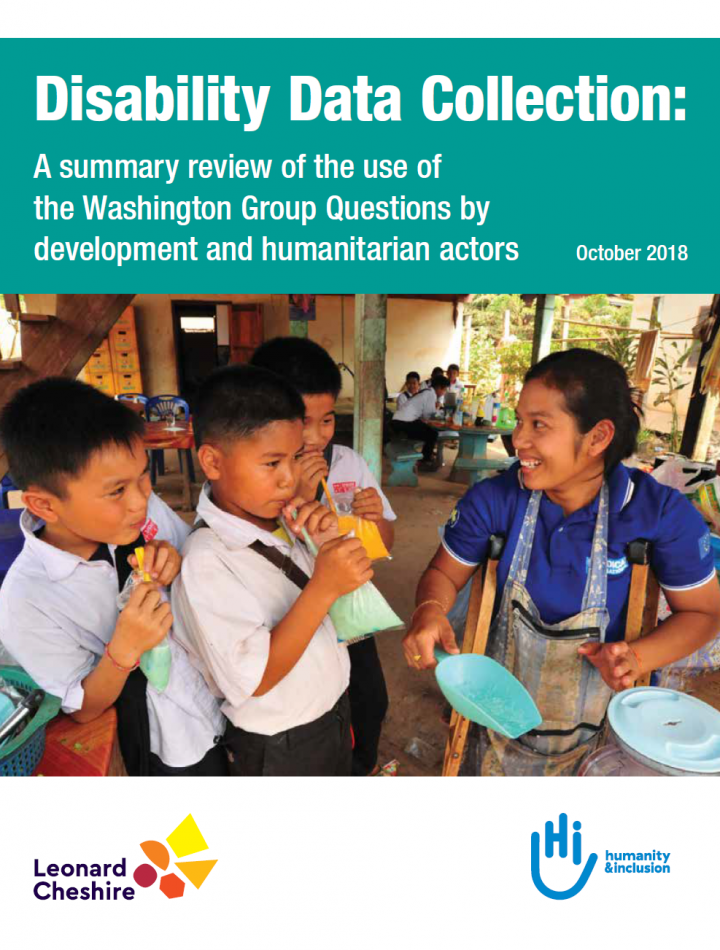Disability Data Collection - A summary review of the use of the Washington Group Questions by development and humanitarian actors
Leonard Cheshire, Humanity & Inclusion (2018)

Published in: 2018
Pages: 32
Publisher:
Leonard Cheshire, Humanity & Inclusion
Author:
Leonard Cheshire, Humanity & Inclusion
Uploaded by:
SuSanA Admin
Partner profile:
common upload
780 Views
99 Downloads
The Washington Group Questions on Disability are rapidly emerging as the preferred data collection methodology by the global community for national data collection efforts on disability. However, more and more development and humanitarian actors are now using the methodology in their own data collection efforts. This is beyond the original purpose of the questions, which was to generate usable data for governments. Leonard Cheshire and Humanity & Inclusion, two international charities focussed on disability and inclusion, have worked together to share learnings of recent research studies. These studies aim to understand how the Washington Group Questions (WGQ) have been used by development and humanitarian actors and the impact of using the methodology. This summary report outlines the key findings, analysis and conclusions about the application of the Washington Group Questions in a range of contexts. The report concludes with a number of recommendations for different stakeholders. Leonard Cheshire and Humanity & Inclusion have identified successful examples of using the Washington Group Questions by both development and humanitarian actors in their data collection efforts. However, both sets of research also have shown that it is not always possible to collect data on persons with disabilities in acute humanitarian crises. They also show that the Washington Group Questions are not an appropriate methodology for every situation. Organisations need to be clear about the needs and objectives for collecting such data and understand the strengths and limitations of the Washington Group Questions. Used alone, they will not give all the information needed to design disability inclusive programming. More research needs to be undertaken to further define the scope in which the Washington Group Questions can be effectively used in development and humanitarian programming. Going forward, Leonard Cheshire and Humanity & Inclusion will produce a further in-depth report and analysis. We are committed to working together, and with relevant actors and those with an interest in data collection by disability. We will seek to strengthen insight, learning and trainings around data collection processes and the Washington Group Questions for humanitarian and development actors.
Bibliographic information
Leonard Cheshire, Humanity & Inclusion (2018). Disability Data Collection - A summary review of the use of the Washington Group Questions by development and humanitarian actors. Leonard Cheshire, Humanity & Inclusion
Filter tags
English Politicians and local decision makers Practitioners














